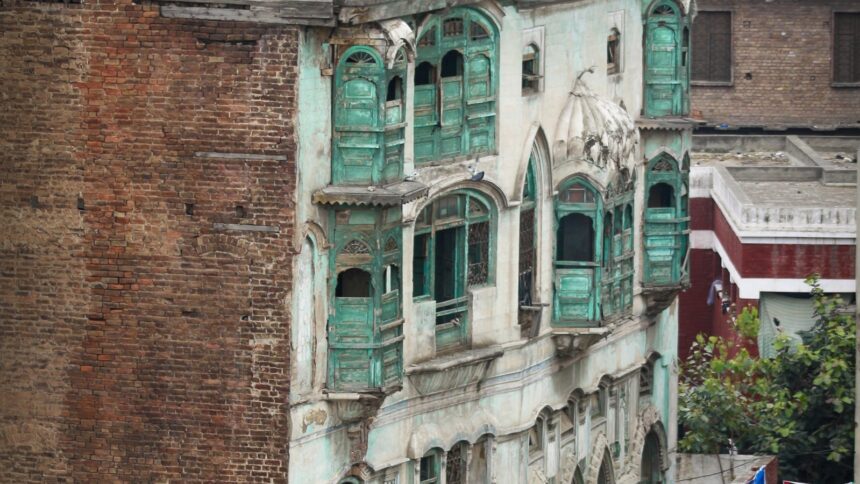In the narrow lanes of Qissa Khwani Bazaar in Peshawar stands a building that is the ancestral home of Bollywood’s iconic Kapoor khandan.
Built between 1918 and 1922 by Dewan Basheswarnath Kapoor, the stately mansion was where his son, the legendary Prithviraj Kapoor, grew up — and where the roots of Indian cinema were first planted. The walls of this old haveli have witnessed the beginnings of a dynasty that would give the world stars like and , as well as later generations that have shaped Bollywood’s golden era.
But time has not been kind.
Locals now refer to it as a “ghost house.” Abandoned for years, battered by storms and earthquakes, the haveli’s once-glorious façade — its intricate balconies and delicate floral carvings — is slowly giving way to dust. Each monsoon that passes brings a little more decay, a little more heartbreak.
In 2018, there was a flicker of hope. After personally requested it, Pakistan’s Foreign Minister Shah Mahmood Qureshi assured him that the government would
For fans and heritage lovers across borders, it felt like a victory. Here was an opportunity to celebrate a shared cultural heritage that transcended politics. But somewhere between promises and paperwork, action stalled. Years later, the haveli still stands dangerously close to collapsing.
According to Pakistani newspaper Dawn, the top three floors of the haveli were demolished in the late 90s “due to cracks created by an earthquake in its upper portion due to its location on steep mound.”
The four-storey haveli still retains some of its old grandeur, with the internal courtyard pretty much intact, leading to several rooms. One of the staircases has also been photographed before in good condition, though pretty steep.
Today, the building belongs to Haji Muhammad Israr, a wealthy jeweller who has different plans for the property. While heritage officials dream of conservation, Israr envisions a sprawling commercial complex rising in its place.
He has tried several times in the past to bring down the haveli’s weakened structure, but each attempt was halted by heritage authorities who filed FIRs to stop the demolition.
“I don’t need the money,” Israr said in a previous interview with PTI, noting that he supplies around 120–160 kg of gold weekly to Peshawar’s largest jewellery market.
Contrary to earlier rumours, Israr insists there’s no price dispute with the government. He simply doesn’t share their vision of what this place should represent.
The haveli’s estimated value stands at over Rs 5 crore — but its emotional and historical worth? Immeasurable.








